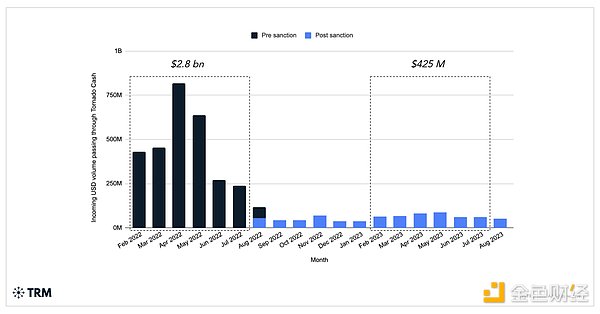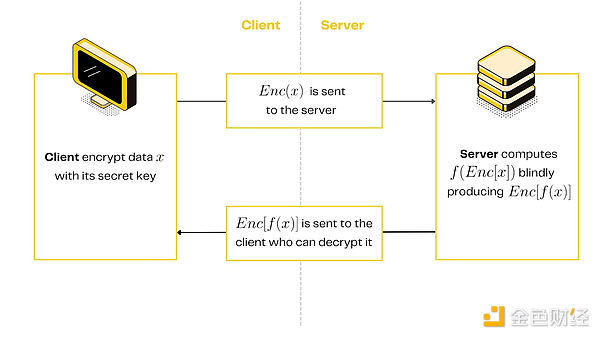Author: Paul Veradittakit, Managing Partner, Pantera Capital; Translated by: Shaw Jinse Finance
Since the birth of Bitcoin, the core concept of the blockchain industry has been transparency—an immutable ledger open to everyone; building trust through verification rather than institutional reputation. This transparency enables decentralized systems to maintain integrity and accountability.
However, as blockchain technology matures and its applications expand, transparency alone is far from sufficient. A new reality is emerging: privacy is crucial for mainstream applications, and this demand is accelerating at cultural, institutional, and technological levels.Pantera has believed in this concept since its inception, investing in Zcash as early as 2015, when it was one of the earliest projects to attempt to introduce privacy into an immutable ledger. We believe we are entering a privacy renaissance era, one that blends the ideals of open blockchain with the practical needs of global finance. This opportunity provides an excellent backdrop for privacy protocols built on the fundamental principle of confidentiality, such as Zama, which is about to launch its mainnet. Zama's fully homomorphic encryption (FHE) technology is an absolute bulwark necessary for mainstream applications worldwide and for resisting the threats of quantum computing in the coming years. Blockchain applications are one application area of Zama's FHE encryption technology, and its application in other vertical fields such as artificial intelligence (Zama Concrete) and cloud computing can be explored in the future. Another company with a similar approach is Starkware, which invented zk-STARKs and Validium, a hybrid approach that balances blockchain privacy and scalability. Starkware's encryption technology is also quantum-resistant and focuses on blockchain application scenarios, especially after the launch of its latest S-Two prover. Cultural Shift: From Surveillance Fatigue to Digital Sovereignty The world's perception of data has undergone a dramatic transformation. Years of mass surveillance, algorithmic tracking, and data breaches have made privacy one of the most important cultural themes of the past decade. Users now realize that not only messages or transaction records, but also metadata can reveal private information such as identity, wealth, location, and relationships. Privacy, combined with users' ownership of their sensitive personal data, has become the new normal. Pantera recognizes this trend and has invested in companies such as Zama, Starkware, Transcrypts, and World. With increasing public awareness of privacy, blockchain cannot ignore the fact that digital currencies must be confidential rather than continuously transparent. In this environment, privacy is no longer a niche preference but part of the drive towards broader digital sovereignty. Institutional Transformation: Transparency Without Privacy Cannot Be Achieved at Mass Scale Institutions are increasingly entering the blockchain ecosystem. Banks, remittance platforms, payment processors, enterprises, and fintech companies are piloting projects and preparing for real-world transaction volumes in tokenized assets, cross-border settlements, and multi-jurisdictional payment channels. However, these institutions cannot operate on a completely transparent public ledger. Corporate cash flow, supplier networks, foreign exchange exposure, contract terms, and customer transactions cannot be disclosed to competitors or the public. What businesses need is confidentiality and the option to choose whether to be transparent, not complete disclosure. It is early pioneers like Zcash who laid the foundation. When Pantera invested in Zcash in 2015, we recognized early on that privacy is not just an ideological preference, but a necessity for real economic activity. Zcash's key insight is that privacy cannot be added to a system after the fact, especially when using zero-knowledge technologies. It must be integrated into the core protocol; otherwise, the system becomes overly complex, fragile, or inefficient. Launched in 2016 as a fork of Bitcoin, Zcash introduced zero-knowledge proof zk-SNARKs technology, allowing users to hide transaction details while maintaining full verifiability. Tornado Cash also represents a significant chapter in the history of on-chain privacy. As people seek ways to break the correlation between public chain transactions, the protocol's user activity has increased significantly.

Tornado Cash user activity (Source: TRM Labs)
However, its overly aggressive approach to privacy and lack of selective disclosure mechanisms ultimately led to high-profile legal action by government authorities, forcing the project to be effectively suspended, despite being autonomous code. This outcome highlights a key lesson: **privacy cannot come at the expense of auditability or compliance.** This is precisely why technologies like Zama's fully homomorphic encryption are so important. Fully homomorphic encryption enables computation on encrypted data while retaining the ability to verify and selectively disclose information—a feature never designed for mixers like Tornado Cash. To understand the importance of fully homomorphic encryption, it's essential to assess the resources and current state of development of fully homomorphic encryption frameworks by tech giants including Apple and Microsoft. Their investment in this area demonstrates a clear consensus: scalable, compliant, end-to-end encryption is the future of digital privacy for consumers and institutions. Privacy protection is accelerating. Data reflects this shift. Privacy-focused crypto assets have garnered significant attention from users and investors. However, the real shift is not driven by retail speculation, but by application scenarios where privacy and transparency must coexist: Cross-border payments increasingly rely on blockchain, but businesses and banks cannot disclose every payment path. Tokenized real-world assets (RWAs) require confidentiality regarding holdings and investor identities. Global supply chain finance requires both parties to a transaction to verify events (shipments, invoices, settlements) without disclosing trade secrets. Enterprise-grade trading channels need a model where auditors and regulators can see relevant information, but the public cannot. Meanwhile, retail investors are increasingly uncomfortable with overly monitored supply chains where the DAG graph of transactions can be easily reconstructed with simple tools. Privacy is gradually becoming a fundamental expectation of consumers regarding digital currencies. In short, the market is reaching a consensus around a simple fact: Blockchains that cannot provide confidentiality will face structural limitations in institutional adoption. Canton, Zama, Starkware, and New Privacy Architectures As the privacy renaissance unfolds, a new generation of protocols is emerging to meet the needs of institutions. Blockchains like Canton highlight the growing enterprise demand for executing private transactions on a shared settlement layer. These systems allow participants to conduct private transactions while enjoying synchronized global state and shared infrastructure. Canton's emergence powerfully demonstrates that enterprises want to gain the advantages of blockchain without publicly disclosing transactions. However, perhaps the most transformative leap in privacy computing comes from Zama, which occupies a distinctly different and more scalable position in the privacy technology stack. Zama pioneered the use of fully homomorphic encryption to build a confidentiality layer, enabling computation on encrypted data. This allows the entire smart contract—including inputs, state, and outputs—to remain encrypted while still being verifiable on a public blockchain. Unlike L1-layer networks that prioritize privacy, Zama can operate across existing ecosystems, particularly the EVM. This means developers and institutions don't need to adopt a new blockchain; they can implement privacy protections within their existing development environments.

Private Smart Contracts Using FHE (Source: Zama)
Zama's architecture represents the next stage in blockchain privacy: it not only hides transactions but also enables the large-scale implementation of private smart contracts.
This unlocks new applications (private DeFi, crypto order books, confidential RWA issuance, institutional-grade settlement processes and clearing, and secure multi-party business logic), all without sacrificing decentralization. Some of these applications will be available soon. Privacy assets are gaining increasing attention. Institutions are actively evaluating levels of confidentiality. Developers are looking to achieve privacy-preserving computation without increasing latency or complexity in off-chain systems. Regulators are also beginning to develop frameworks to distinguish between legitimate confidentiality tools and illegitimate obfuscation methods. Looking ahead, privacy in blockchain is no longer a debate between transparency and privacy, but rather a growing awareness that both are indispensable for the next era of DeFi. The convergence of cultural attitudes, institutional needs, and cryptographic breakthroughs is reshaping the direction of blockchain development over the next decade. Zcash demonstrates the necessity of privacy at the protocol level. Protocols like Canton demonstrate the institutional need for private channels. Zama is building infrastructure that unifies these needs into a single, cross-chain, general-purpose, and scalable privacy layer. Pantera's early investment in Zcash stemmed from a simple belief: privacy cannot be ignored. Nearly a decade later, this principle remains as important as ever. From tokenized assets to cross-border payments to enterprise settlements, the next wave of blockchain applications depends on ensuring the secure, seamless, and private operation of blockchains. As privacy becomes a key theme in this market cycle, protocols that provide practical, scalable, and compliant privacy will shape the future market landscape. Zama will stand out as one of the most promising and timely leaders in this privacy supercycle.
 Kikyo
Kikyo





